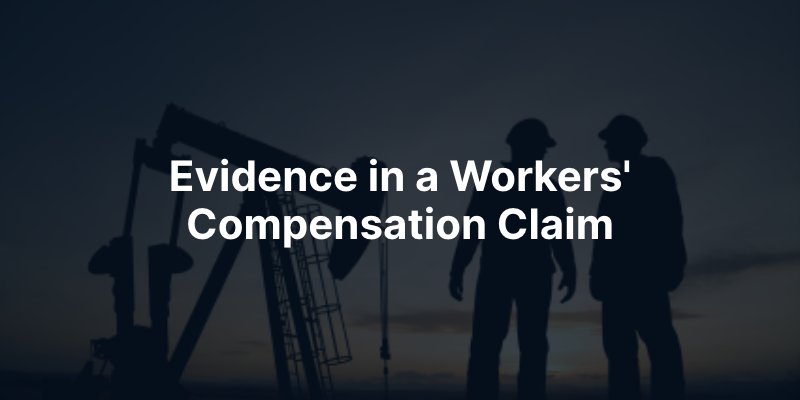Workers’ compensation claims serve as a critical safety net for employees who suffer from job-related injuries or illnesses. In these cases, the strength of the claim often hinges on the quality and relevance of the evidence presented.

To support your workers’ comp claim, it is vital to gather the following types of evidence:
The cornerstone of any workers’ comp claim is comprehensive medical documentation. For example:
Eyewitness accounts provide critical perspectives on the incident. Witnesses may include:
These documents help establish the context and conditions surrounding the incident:
Financial documentation supports claims for compensation for medical expenses and lost wages.
Gathering and organizing evidence for a workers’ compensation claim is a meticulous process to form the foundation of a strong case. It begins with seeking prompt medical attention and ensuring that your injury is well-documented by healthcare professionals. It is also crucial to document all interactions related to the incident, including conversations with supervisors, coworkers, and insurance representatives.
If you can remain at the scene before seeking medical treatment, preserving any physical evidence, such as damaged equipment or photographs, can be invaluable in establishing the context of how you were injured.
The next step is to request and retain copies of relevant documents, including medical records, incident reports, and financial receipts. Additionally, maintain a detailed journal of your recovery, pain levels, and any impact on daily activities. A personal account of the injury’s effects on your life can be compelling evidence.
An Orange County workers’ compensation attorney can play a crucial role in helping you gather the evidence you need for a workers’ compensation claim. They will employ a multifaceted approach to ensure that all relevant information is collected and organized effectively while you focus on your recovery. In addition to the above evidence, they may also:
An attorney’s comprehensive approach can significantly strengthen the chances of a successful outcome for your case.
Although workers are generally entitled to workers’ compensation benefits for a job-related injury or illness regardless of who was at fault, evidence is still crucial for several reasons:
Establishing the Validity of the Claim
While workers’ compensation is a no-fault system, there still needs to be evidence to demonstrate that the injury or illness occurred in the course of employment. Providing this evidence ensures that the claim can be processed and benefits can be disbursed in a timely manner.
Confirming the Extent of the Injury
Medical records and reports provide concrete documentation of the extent and severity of the injury. This information is necessary to determine the appropriate level of compensation.
Ensuring Proper Treatment and Rehabilitation
Evidence, especially medical records, helps determine the necessary treatment and rehabilitation you require since workers’ comp will only cover reasonable medical treatment. This documentation will ensure you receive the appropriate care to recover and return to work.
Calculation of Benefits
Financial records, such as pay stubs and medical bills, are essential for accurately calculating the compensation you are owed for lost wages and treatment.
Addressing Disputes or Denials
Employers or insurers may still dispute or deny a workers’ compensation claim even in a no-fault system. Strong evidence provides a basis for challenging these decisions and demonstrating the validity of your claim.
Guiding Settlement Negotiations
During negotiations, evidence forms the basis for determining a fair settlement amount. It provides a clear rationale for the amount of compensation you are seeking.
Preparing for Legal Proceedings (if necessary)
In the rare event that a workers’ compensation claim goes to court, evidence is still critical. It is presented, examined, and contested by both parties and ultimately shapes the judge’s decision.
If you have been injured or suffered an illness on the job, speaking to a lawyer can be invaluable when it comes to navigating this process and ensuring that all necessary evidence is collected. Arrange a free consultation with a trusted attorney today.